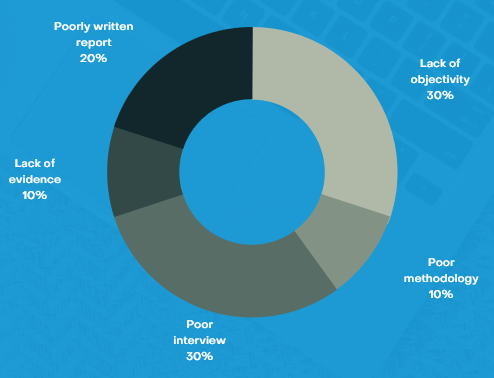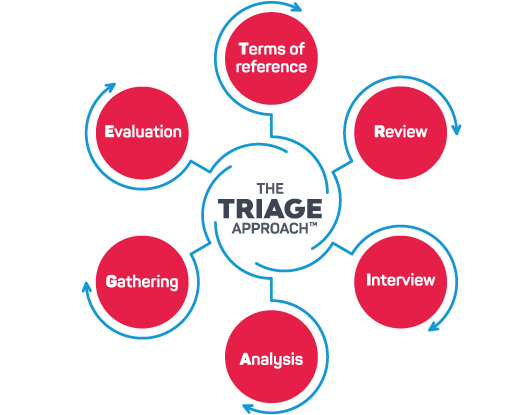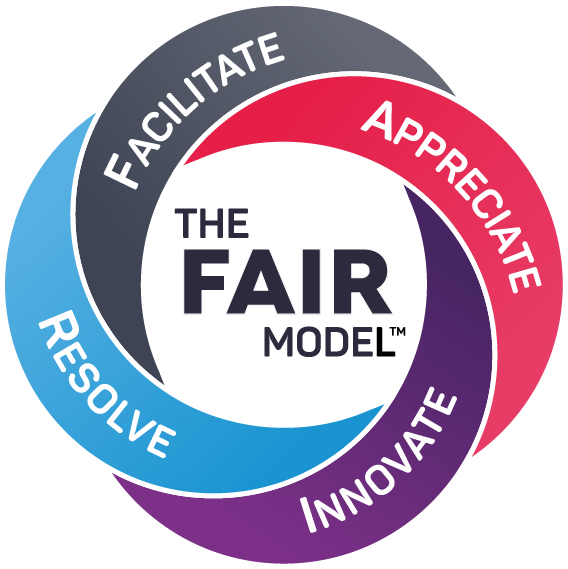
Share article:
Tags:
Who are we?
2021 saw a 70% increase in demand for our investigation services, prompting the launch of its own brand, The Investigation Company. Supported by a team of world-class consultants with decades of experience collectively, TIC provides investigation and audit services, training and case management to ensure a fair, thorough and objective assessment of any and all cases.
The team is female-powered and led by Harriette Wolff, Head of Investigation and Audit Services and Chloe Pye, Investigation Services Coordinator. Together, with Principal Resolution Consultant Andi Hargreaves, they introduced the world to the TIC talent on an exclusive webinar.
The consultancy team is made up of 40 TCM accredited investigators. 23 of these are also accredited mediators, ensuring that facilitating a safe, open space for parties is always at the forefront of their minds when conducting investigations. There’s also 7 Equality, Diversity & Inclusion specialists, 9 criminal case experts with policing backgrounds, and particular skills in bullying and harassment, discrimination, sexual harassment, safeguarding and fraud.
The importance of an investigation
In 2021, an employment tribunal awarded £2.5 million for an unfair dismissal, disability-related harassment and unfavourable treatment claim. That’s a huge financial expense – not to mention the emotional, personal and business costs – that could have been avoided by conducting a fair and thorough investigation. As a robust, factfinding process, investigations avoid financial and reputational risk whilst also ensuring that employee wellbeing is paramount.
It’s legally compliant, too. All TIC investigations comply with ACAS guidance, specifically the Code of Practice of Disciplinary and Grievance Procedures and the Guide to Conducting Workplace Investigations. It’s a recommended route of action for serious and complex issues in the workplace that seek resolution. Guidelines state that:
- S4: Employers should carry out any necessary investigations, to establish the facts of the case.
- S5: It is important to carry out necessary investigations of potential disciplinary matters without unreasonable delay to establish the facts of the case.
- Guidance: Making a decision without completing a reasonable investigation can make any subsequent decisions or actions unfair and leave an employer vulnerable to legal action.
Why do we so often get it wrong?
Commonly, investigations fail. This is often due to a lack of trained and competent investigators. It’s also down to the following reasons:

How can we avoid these risks to our financial, employee and business success? Firstly, it’s vital that anyone carrying out your workplace investigations is trained and confident to do such – whether it’s HR teams, or Senior Managers who might be part of the Investigation team. Secondly, have a robust policy and framework to follow – this ensures consistency across the board, and Investigators will be clear on what’s expected of them in this role.
Best practice for conducting a fair, objective and thorough investigation
TIC’s approach to investigations enhances this with its unique TRIAGE system of evaluation:

At The Investigation Company, these six key steps are integral to creating psychologically safe spaces for clients. Conducting thorough, analytical and professional evaluations, using advanced cognitive interviewing techniques, means that parties feel comfortable, confident and courageous to share information. Facilitating a safe and open environment causes people to open up – often the crucial moment of understanding the issue at hand.
Throughout each case, it’s important to keep two factors in consideration:
- Keeping the individuals safe and ensuring that they are subject to a fair and objective investigation.
- Protecting the organisation.
Top tips
For Principal Resolution Consultant Andi, investigators should follow these tips to ensure best practice:
- Have a clear terms of reference
- Review the documents
- Plan the interview
- Remain objective
- Follow the evidence
- Base recommendations on the balance of probabilities
In a workplace investigation, the investigator will really collate all the information, reach their conclusions, or evaluate their findings on what we call the balance of probability. We need to be rational and clear in our findings in order to provide suitable recommendations.
The FAIR model

The secret of our success is The Investigation Company’s FAIR Model for investigations. It advocates a compassionate, empathetic and non-confrontational approach to interviewing and investigating. This enables parties to feel safe and secure, which has benefits for the individuals involved, and the process as a whole. The model provides:
- Compassionate and evidence-based approach
- A clear, structured investigation plan
- Advanced interviewing techniques such as cognitive interviewing
- An open and transparent evidence-gathering process
- A detailed and comprehensive report
- Findings based upon the balance of probabilities
- Recommendations for organisations to reflect upon and improve for the future
It’s vital for an investigation to create a physiologically safe environment for parties to open up and trust in the process – not only does it show care and compassion in what can be very difficult conversations for some, but it creates transparency and trust in people policies for the future.
The Investigation Company doesn’t just investigate. It also conducts neutral evaluations, disciplinary and appeal hearing support, and investigation training. Whatever your needs – we’ve got your back.
If you missed the webinar and you’d like to catch up, you can watch the full recording below:
The Investigation Company Launch Webinar | 22nd February 2022 from The TCM Group on Vimeo.














